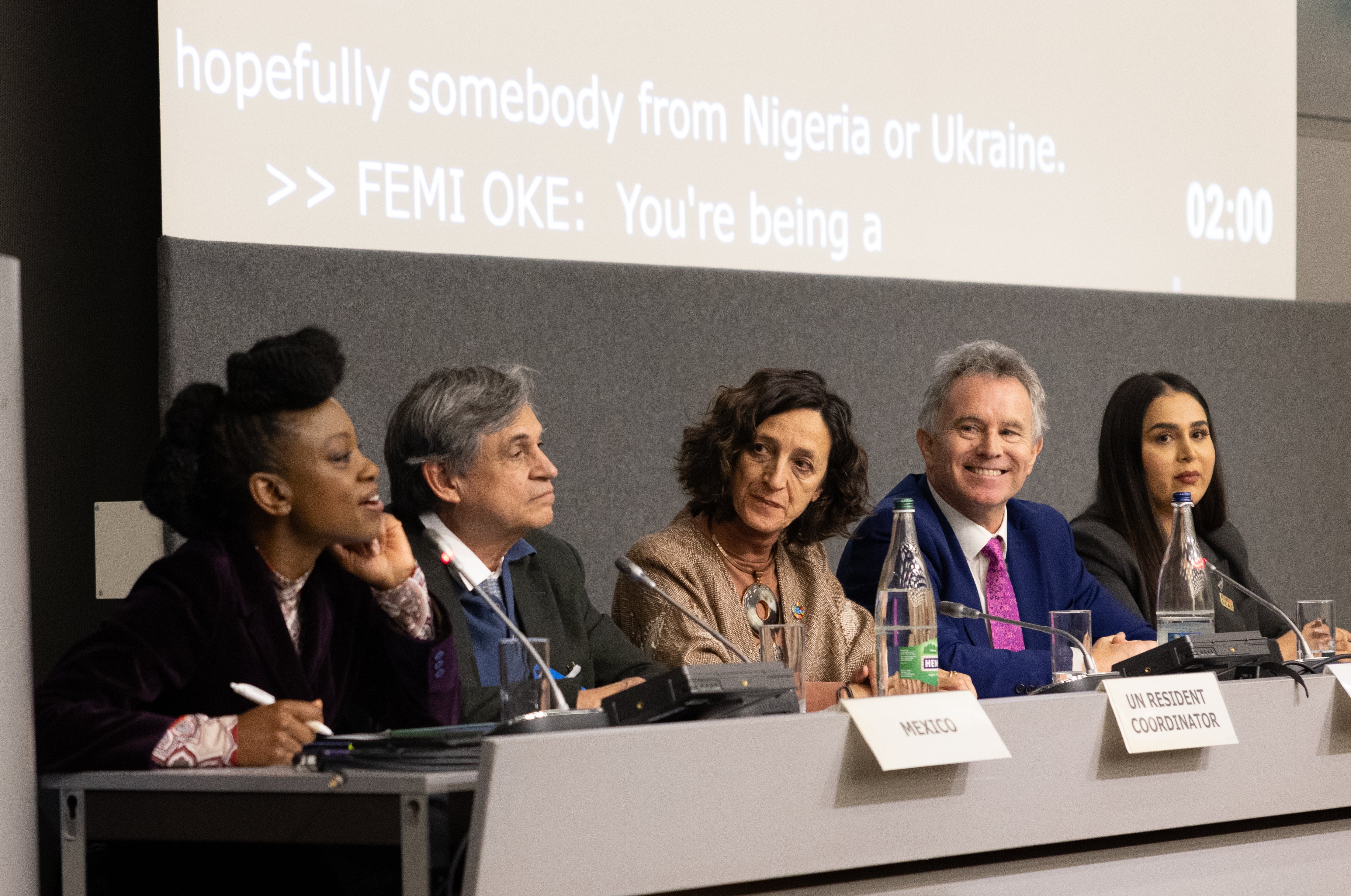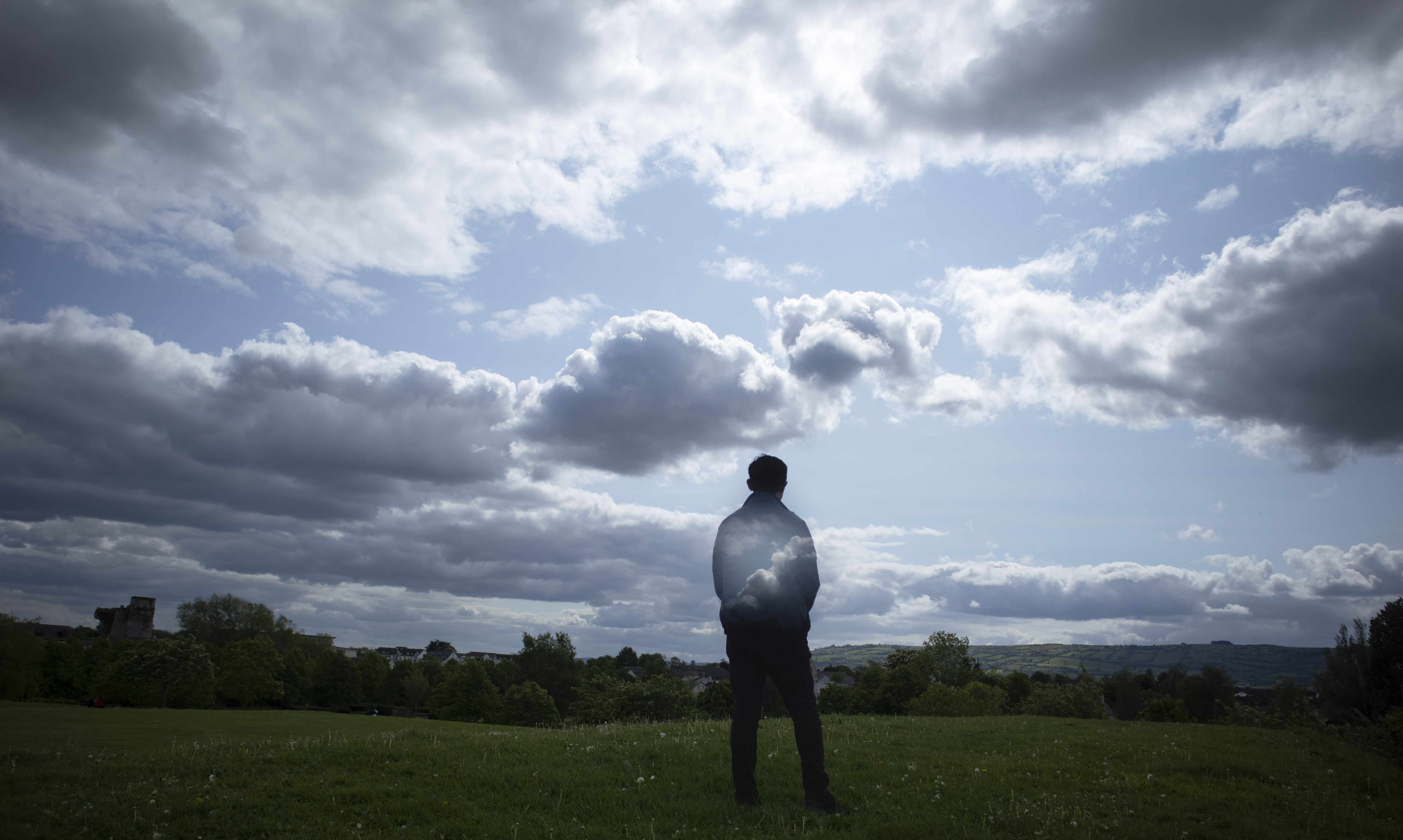Protecting the needy: A Corkman in Syria
Protecting the needy: A Corkman in Syria

After a long career in the private sector, Corkman Damien Mc Sweeney decided he needed to change tack. Over the last several years has worked with the Department of Foreign Affairs, as an External Relations Officer with UNHCR and is currently working as a Reporting Officer with UNHCR in Syria. We caught up with Damien to hear about his work and what keeps him motivated in one of the most dangerous places in the world.
Damien, could you please tell us about your background and how you came to work for UNHCR in Syria?
After working in the private sector for a number of years I was very unhappy and after much soul searching I decided to return to college to pursue a career in Humanitarian work. I hold two Bachelor’s degrees, one in International relations and the other in International development and food policy. In addition I hold a Ph.D. from University College Cork, which deals with the protection and security of vulnerable populations in complex emergencies. In addition I have previously worked with the Irish Department of Foreign Affairs, Irish Aid Emergency Section, as an external relations officer with UNHCR in the Dadaab refugee camps near the Kenyan/Somali border, as a reporting and operations officer in Jonglei State, South Sudan, with the UN Mission in South Sudan (UNMISS) and now presently in Damascus, Syria with UNHCR, as their reporting officer.
What is it about your current role that appeals to you most?
Firstly, there is the obvious opportunity to work in one of the oldest cities in the world and observe and learn firsthand about 7000 years of civilization. Furthermore, because the focus of the world is now on Syria, any of the information, reports and publications we produce are very much sought after and widely read. It’s great that my team’s efforts aren’t wasted and the information is being used. In addition the Syrian people are a warm and hospitable people and I now count many Syrians as good friends.
What are the main focuses of UNHCR’s work in Damascus/Syria?
In addition to the many deaths and displacements, the crisis has led to a breakdown of social services as well as an estimated loss to the Syrian economy of US$140 billion. Only 43% of hospitals are fully functioning and almost 50% of Syria’s physicians have fled the country as well as 4,000 schools completely destroyed. In addition, 1.2 million houses have been damaged, including approximately 400,000 completely destroyed. Because of this, UNHCR’s main areas of focus are Protection, Non Food Items distribution (mattresses, blankets, winter clothing, plastic sheeting, kitchen sets, hygiene kits and nappies) health and shelter.

From your perspective, what are the main issues for Refugees & IDP’s in Syria?
Protection issues including lost or destroyed documentation, SGBV, child protection, trauma and psycho-social problems and loss of livelihoods. Also loss of belongings with people often fleeing fighting with little more than the clothes on their backs, lack of shelter and lack of access to social services such as health and education.
As a reporting officer with UNHCR, your job is to gather and communicate essential information on refugees and IDPs-what are some of the main challenges you encounter in this sense?
In terms of information gathering, access to many besieged areas is one of the largest challenges faced by us. For example there are two governorates (Raqqa and Deir Ezzor) where we can’t operate as they are controlled by ISIS so getting reliable information from these areas is next to impossible. In addition, because of the millions of people who have left the country there is a considerable brain drain which has led to lack of expertise and capacity in many areas. We try to combat this by travelling to our field offices throughout Syria and providing specialized training in the areas of reporting and information management amongst other things.
Given Syria’s well documented environment of mass violence and conflict, how do you find the day to day work environment?
It can be extremely challenging, especially in terms of freedom of movement, access to areas and security. On a daily basis, there is a challenging security situation with the risk of collateral damage from gunfire, rockets and mortars, IEDs VBIEDs and PBIEDS as well as the increased risk of kidnapping with the expansion of ISIS. A few months ago, unannounced rocket and mortar attacks took place on Damascus city on 22, 23 and 24 August. During the shelling, the houses of two UNHCR staff members were hit but luckily neither they nor their families were hurt. In addition, there have been a number of deliberate attacks on UN staff with both hotels in Damascus and the hotels in Homs and Aleppo where UN staff reside experiencing attacks. Despite this, I work with a fantastic, friendly and professional team and we always try to keep morale high.
The current mass displacement of people in Syria has been widely covered on an international scale. What is a lesser known fact about the current displacement crisis in Syria
The plight of the four million refugees who have fled Syria has been widely covered especially because of the impact it is having on European countries …but the plight of the internally displaced has not been significantly covered by the international press to the same extent. The needs of the internally displaced population in Syria are huge!! After nearly five years of conflict, Syria is the largest humanitarian and protection crisis globally with UN estimates of 230,000 people dead with over to one million injured. 12.2 million are now in need of humanitarian assistance with 11.6 million Syrians forced to leave their homes, often multiple times. Over 7.6 million people now internally displaced within Syria with over 200,000 trapped in besieged or hard to reach areas
Since the beginning of 2015, UNHCR and its partners have responded by providing protection services to over 600,000 individuals, health services to another 600,000 people, shelter solutions to 37,000 individuals as well as distribution nearly 8.5 million Core Relief Items (CRIs) to 2.1 million vulnerable individuals. The challenges are huge but we will continue to reach as many people as possible with the limited resources at our disposal.

Do you think there is a good public understanding of the issues faced by refugees/IDP’s both within Syria and more broadly, in the Middle East?
In general there is awareness that there is conflict in Syria and that there is presently largescale displacement flows both inside and outside Syria. However, the recent tragic killings in Paris and the subsequent media coverage spreads fear and misinformation about Syrian (and other) refugees and provoke ‘kneejerk’ reactions from Governments. Refugees fleeing war in Syria often make perilous journeys in overcrowded dinghies to Greece with some losing their loved ones along the way. They should not have to suffer further because of the actions of crazy people who carried out these attacks so it’s up to us in UNHCR to advocate on their behalf, make sure they receive the protection that they are entitled to under international law as well as ensure the public are well informed on the issues faced by them. We in UNHCR Syria will continue to work hard to ensure this.
Do you miss Ireland? Could you see yourself living in Syria or the Middle East in the long term?
As most of my colleagues in Syria (and South Sudan and Dadaab) can attest, I wear my Irishness like a badge of honour. I am proud to be Irish and love to see the friendly reaction of people throughout the world when they find out where I come from. For a small island, through our international aid programmes (both government and NGOs) and our advocacy for the rights of the poor and oppressed worldwide, we have gained the respect and friendship of people the world over. Of course there are things I miss about Ireland such as my family, friends, Irish smoked bacon and a nice cold cider, but the world is becoming a smaller place and I can get home a few times a year to see them and catch up. I love my work, however, and will continue to work in Syria for as long as I am needed.
What are some of the more challenging aspects of your day-to day work? Are there any high-points?
Every day brings its own challenges, sudden urgent requests for information, constant tight deadlines, and the challenging security situation. However the high-point for me is the fantastic team I work with and the constant support we give one another.
What advice would you give to someone considering your line of work?
A HUGE sense of humor, especially if you wish to work in conflict zones hahaha!




